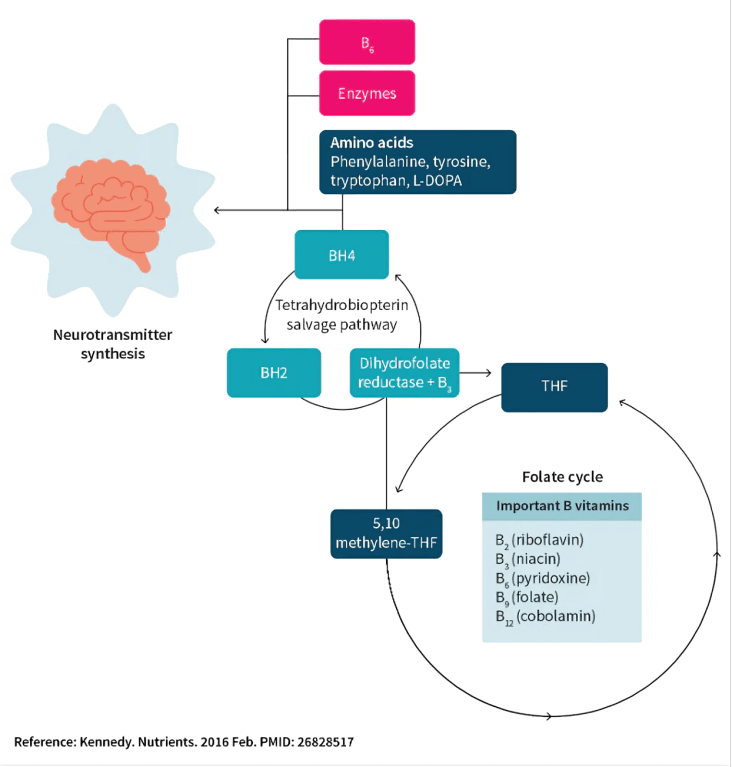
“
Understanding the link between diet & mood disorders reveals how nutrition deeply influences our mental health. From gut bacteria to serotonin levels, what we eat can fuel or flatten our mood. Let’s explore the complex science behind the link between diet & mood disorders.1
1
”
The gut and brain constantly chat through the gut-brain axis. When gut bacteria are imbalanced, it can mess with serotonin levels—our mood chemical—raising the risk of anxiety or depression.1
Omega-3 fatty acids, found abundantly in oily fish like salmon, are essential for brain health. Deficiencies in omega-3s have been associated with increased risk of depression. 2
Vitamin D, often obtained through sunlight exposure and certain foods, is vital for mental health. Low levels of vitamin D have been linked to higher incidences of mood disorders, suggesting supplementation may benefit those deficient. 3

B vitamins, particularly B12 and folate, are crucial for neurotransmitter synthesis. Vitamin deficiencies are linked to depression, highlighting the importance of proper intake through diet or supplements.
Magnesium plays a role in numerous neurological functions. Low magnesium levels have been associated with increased risk of anxiety, indicating that sufficient magnesium intake may support mental well-being. 4
Diets high in refined sugars and saturated fats can promote systemic inflammation. Chronic inflammation may contribute to depression, indicating that diet-related inflammation can impact mood. 5
Antioxidant-rich foods, such as fruits and vegetables, combat oxidative stress in the body. Oxidative stress has been linked to mood disorders, indicating that a diet high in antioxidants may have protective effects on mental health. 6

Fermented foods like yogurt and kimchi contain probiotics that support gut health. A healthy gut microbiome has been linked to improved mood and reduced symptoms of depression and anxiety.
Regular meal patterns help maintain stable blood sugar levels. Fluctuations in blood sugar can influence mood, leading to irritability or fatigue, highlighting the importance of consistent eating habits. 7
Hydration is essential for cognitive function and mood regulation. Even mild dehydration can negatively impact concentration and increase feelings of anxiety or depression. 8
High intake of ultra-processed foods has been linked to increased risk of mood disorders. These foods often lack essential nutrients and may disrupt gut microbiota balance, affecting mental health. 9
Dietary fiber supports a healthy gut microbiome by promoting the growth of beneficial bacteria. A balanced gut microbiome is associated with better mood and reduced risk of depression. 10
Caffeine consumption can influence mood and anxiety levels. While moderate intake may enhance alertness, excessive caffeine can lead to increased anxiety and sleep disturbances, affecting overall mental health. 11
Protein-rich foods provide amino acids necessary for neurotransmitter production. Adequate protein intake ensures the availability of these building blocks, supporting mood regulation. 12

Sharing meals with others can enhance social connections and improve mood. Communal eating experiences contribute to emotional well-being and may reduce feelings of loneliness or depression.
Polyphenols, found in foods like berries and tea, have antioxidant properties. These compounds may protect against neuroinflammation, potentially reducing the risk of mood disorders. 13
Vitamin B6 is involved in the synthesis of neurotransmitters such as serotonin and GABA. Deficiency in B6 can lead to mood disturbances, emphasizing the need for sufficient intake through diet. 14
Iron deficiency can lead to fatigue and cognitive impairments. These symptoms may contribute to the development or exacerbation of mood disorders like depression. 15
Zinc plays a role in brain function and neurotransmission. Low zinc levels have been associated with increased risk of depression, suggesting that adequate zinc intake is important for mental health. 16
Tryptophan, an amino acid found in various foods, is a precursor to serotonin. Consuming tryptophan-rich foods may support serotonin production, influencing mood positively. 17


